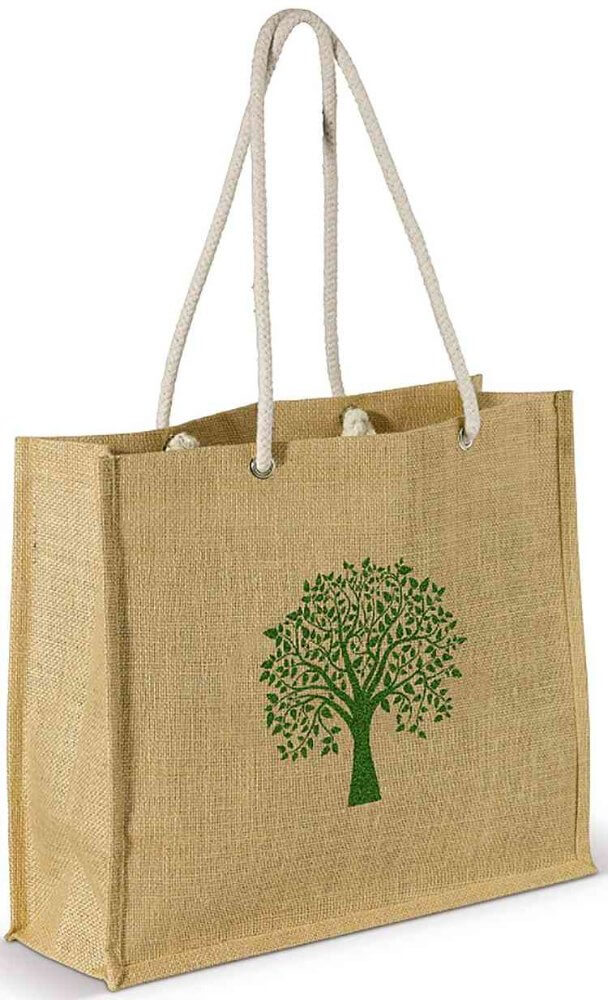In an era where environmental consciousness is paramount, the choices we make in our daily lives can have far-reaching consequences. One such choice that often goes unnoticed is the type of bag we use for shopping and everyday activities. The decision to opt for either jute or plastic bags may seem inconsequential, but the environmental impact of this choice is significant. In this article, we delve deep into the comparative analysis of the environmental impact of jute bags versus plastic bags, shedding light on the detrimental effects of plastic on our planet and advocating for the responsible choice of jute bags.
The Predicament of Plastic Pollution
The Menace of Single-Use Plastic
The widespread use of plastic bags has created a colossal environmental problem. Single-use plastic bags, which are handed out at countless stores worldwide, pose a severe threat to our ecosystems. These lightweight, non-biodegradable bags are notorious for their persistence in the environment. They can take hundreds of years to decompose, releasing harmful toxins into the soil and water during their slow decay.
Devastating Effects on Marine Life
Plastic bags often find their way into rivers and oceans, where they pose a dire threat to marine life. Sea turtles, dolphins, and various seabirds frequently mistake plastic bags for food, leading to ingestion. This ingestion can result in choking, starvation, and ultimately death for these innocent creatures. Furthermore, the decomposition of plastic bags into smaller particles, known as microplastics, further exacerbates the problem as they infiltrate the food chain, posing risks to human health as well.
The Eco-Friendly Alternative: Jute Bags
Jute: A Natural Fiber
Jute bags offer a compelling alternative to plastic bags. Derived from the jute plant, these bags are entirely natural and biodegradable. Jute is a robust, long, soft, and shiny vegetable fiber that can be spun into coarse, strong threads. This natural fiber makes jute bags not only eco-friendly but also durable and versatile.
Jute’s Minimal Environmental Footprint
One of the most striking advantages of jute bags is their minimal environmental footprint. The cultivation of jute plants requires far fewer pesticides and fertilizers compared to other crops, making it a more sustainable option. Moreover, jute plants absorb significant amounts of carbon dioxide during their growth, helping to mitigate the greenhouse effect.
Biodegradability and Reusability
Unlike plastic bags that linger in landfills and oceans for centuries, jute bags decompose naturally within a few months. This ensures that they do not contribute to the ever-increasing pile of non-biodegradable waste. Additionally, jute bags are sturdy enough to be used repeatedly, reducing the need for constant production and disposal.
The Responsible Choice
A Shift Towards Sustainability
In a world grappling with the consequences of plastic pollution, making a conscious choice to switch to jute bags is an act of environmental responsibility. By opting for jute over plastic, we take a significant step towards reducing our ecological footprint and safeguarding the planet for future generations.
Government Regulations and Bans
Recognizing the severity of the plastic crisis, many governments worldwide have imposed bans or restrictions on single-use plastic bags. These regulations encourage consumers to turn to eco-friendly alternatives like jute bags. Embracing these changes not only aligns with regulatory compliance but also contributes to the preservation of our environment.
Conclusion
In the battle between jute and plastic bags, the choice is clear. Plastic bags, with their long-lasting detrimental impact on our environment and wildlife, are a menace that cannot be ignored. Jute bags, on the other hand, offer a sustainable, biodegradable, and eco-friendly alternative that aligns with the principles of responsible living.
To protect our planet and ensure a healthier future for all living beings, the shift towards jute bags is not just an option; it’s a necessity. Let us make the right choice today, embracing jute as the eco-conscious alternative to plastic and taking a step closer to a cleaner, greener world.










